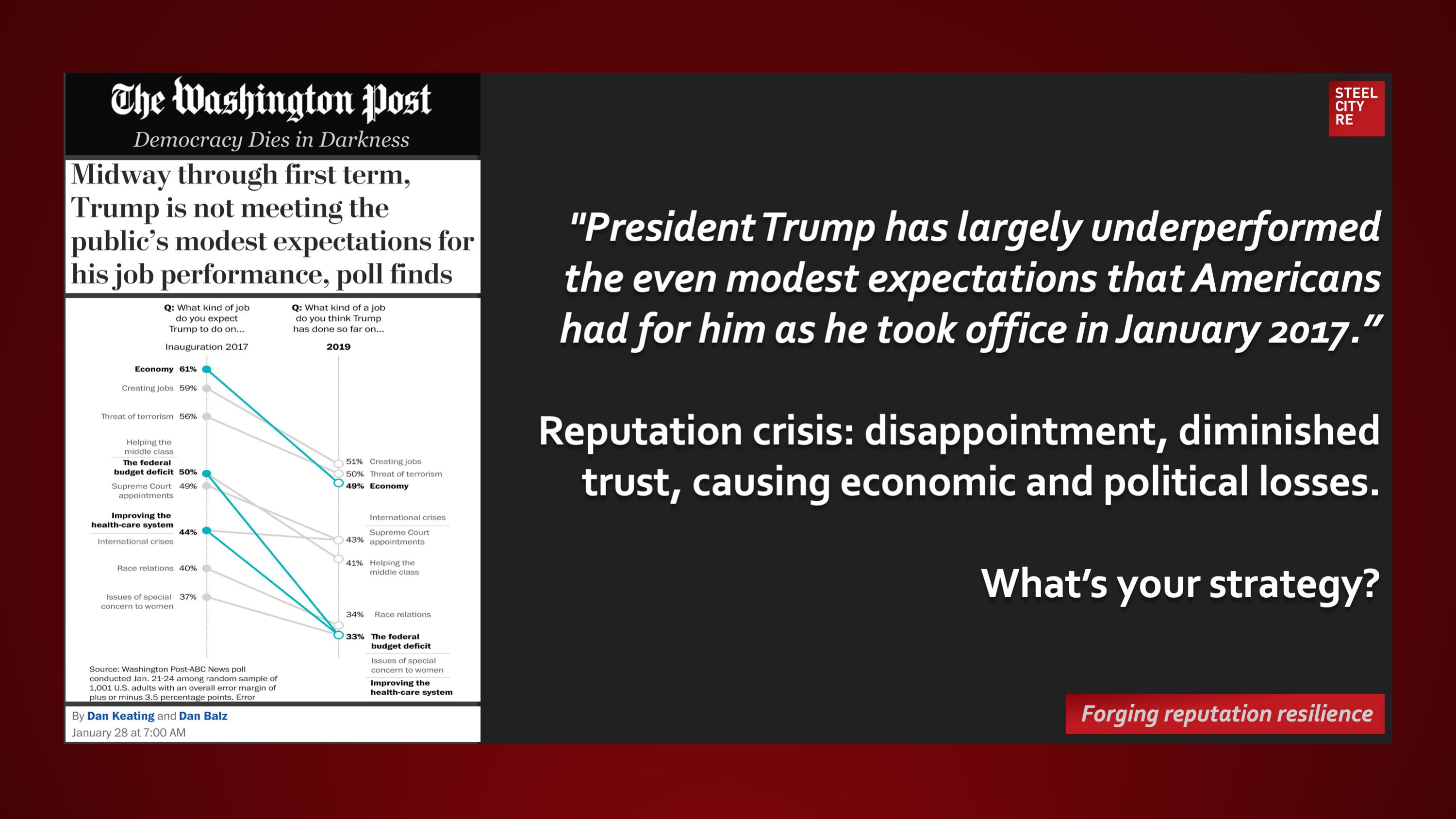Along with the deficit and health care, Americans grade Trump the worst on issues dealing with women and race relations, both areas in which the president started with low expectations. About one-third say he has done an excellent or good job on each in his first two years, with more than 6 in 10 adults calling his performance poor or not so good.
Another issue where Trump has performed below initial expectations is health care, where his positive ratings have fallen from 44 percent to 33 percent. The sharpest falloff came among independents, from 48 percent saying they expected him to do a good job with the issue to 22 percent. When Trump came into office, he and Republicans promised to repeal and replace the Affordable Care Act, but those aspirations eventually died in Congress.
The starkest gap between Trump’s current ratings and Americans’ initially positive expectations is on the federal deficit. Two years ago, 50 percent of Americans thought Trump would do an excellent or good job handling the deficit. The new poll finds 33 percent saying he has done well, a 17-point drop that occurred across party lines. Notably, many Republicans have shifted in their views. Two years ago, 87 percent of Republicans said they expected him to deal with the deficit effectively. Today, 67 percent of that group think he has done that. Among independents, the number who say he would effectively tackle the deficit has dropped from 52 percent to 27 percent.
January 30, 2019
Washington Post
“President Trump has largely underperformed the even modest expectations that Americans had for him as he took office in January 2017.”
Reputation crisis: disappointment, diminished trust, causing economic and political losses.
Reputations are valuable strategic intangible assets. Threats to these assets⏤ enterprise reputation risks, often mislabeled “brand risks” ⏤ need to be managed, and management needs to be overseen through reputation risk governance lest reputational damage or reputational harm result in long-tailed go-forward losses in economic value and/or political power. Because these intangible risks arise from the interplay of stakeholder expectation, experiences, and media amplification, parametric insurances for intangible asset risks, for reputational value, for reputational harm, and for reputation assurance help mitigate risk by telling a simple, convincing and completely credible story of quality reputation governance to stakeholders. This story telling effect is the expressive power of insurance complementing insurance’s better known instrumental power of indemnification.
Risk management, risk financing in insurance captives, and risk transfer through reputation insurances comprise the constituent elements of a comprehensive solution. What’s your strategy?

